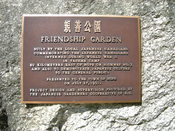During its history, Canada's government had declared the war measures act 3 times. First time was during World War I, second time was in World War II, and last declaration to date took place during the FLQ crisis. The second case is presented in this paper. Canadian Government was fully justified in forcefully interning Japanese Canadians during World War II. There was a national security risk, Canada could not defence it self in case of an invasion. Japanese living in Canada had to be interned for their own good, there was an anti-Japanese hysteria in British Columbia and especially in Greater Vancouver, and if the government took no action the public would have done something far worse instead.
On December 7, 1941 Japan launched a massive attack against the United States naval base Pearl Harbour, 18 days later on December 25, 1941 Japan captured Hong Kong from British and Canadian defenders.
Given these events it was clear that Japan made its move and Canada's national security was at risk. Now the possibility of Japanese spies in Canada was no longer negligible, it was necessary to take certain measures in order to prevent a possible invasion. It is easy to tell apart a Japanese spy from a Canadian of European descend, but, if that spy is hiding in a crowd of Japanese Canadians the whole story changes. Simply having spies in a country is quiet useless if they are unable to send collected information back to their homeland. January 14, 1942 all Japanese were prohibited from fishing as well as denied the use of cameras and radios as those are devices which can be used by spies. The impoundment of Japanese fishing boats was necessary to ensure that the boats could not be used to contact Japanese submarines waiting...


